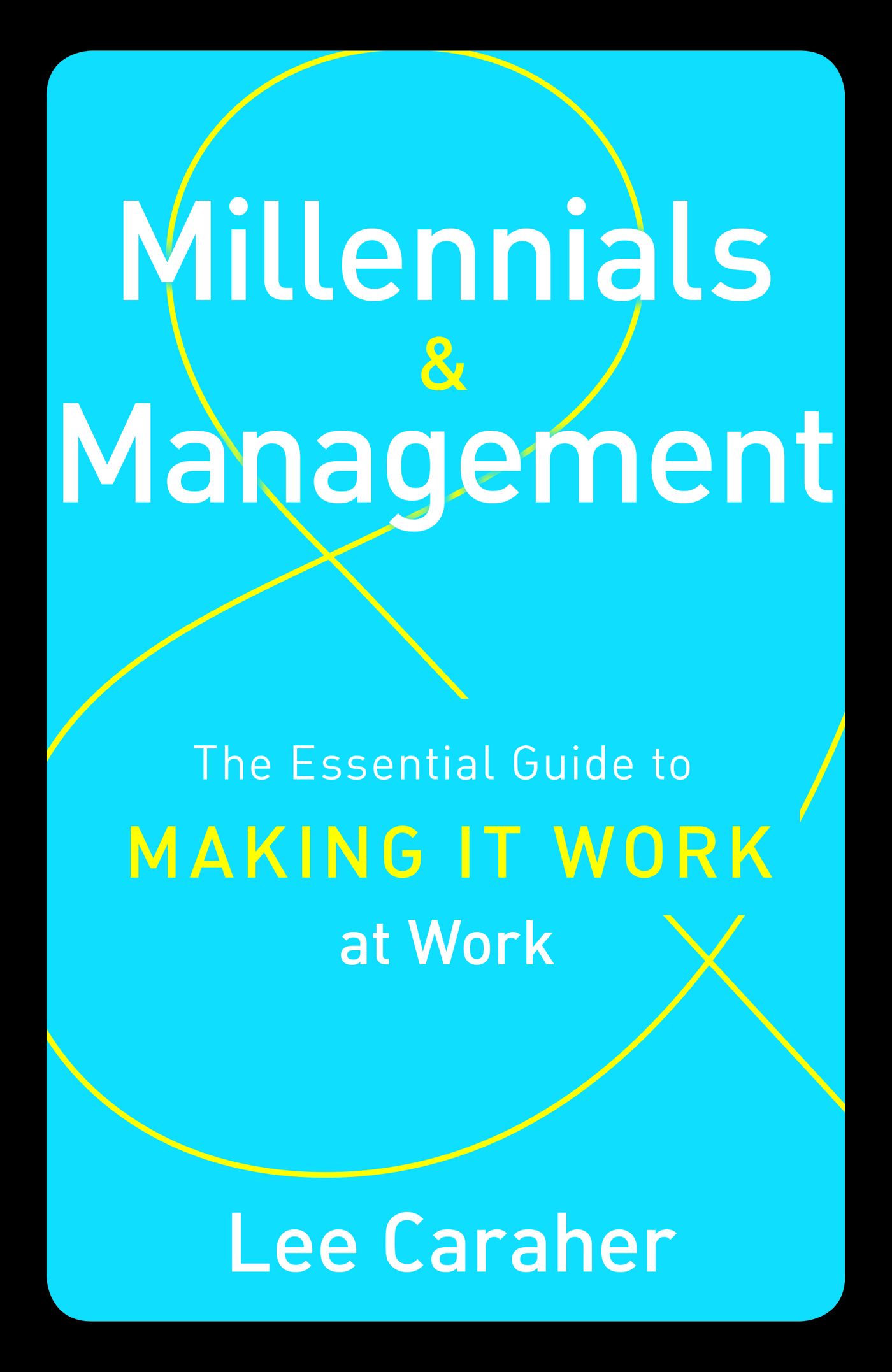First published by Bibliomotion, Inc.
39 Harvard Street
Brookline, MA 02445
Tel: 617-934-2427
www.bibliomotion.com
Copyright 2015 by Lee Caraher
All rights reserved. No part of this publication may be reproduced in any manner whatsoever without written permission from the publisher, except in the case of brief quotations embodied in critical articles or reviews.
Library of Congress Cataloging-in-Publication Data
Caraher, Lee.
Millennials & management : the essential guide to making it work at work / Lee Caraher.
pages cm
Summary: Millennials & Management: The Essential Guide to Making it Work at Work addresses how to motivate, collaborate with, and manage the millennial generationwho now make up almost 50% of the American workforceProvided by publisher.
ISBN 978-1-62956-027-4 (hardback) ISBN 978-1-62956-028-1 (ebook) ISBN 978-1-62956-029-8 (enhanced ebook)
1. Personnel management. 2. Generation YEmployment. 3. Diversity in the workplaceManagement. 4. Intergenerational relations. 5. Employee motivation. I. Title. II. Title: Millennials and management.
HF5549.C2897 2014
658.30084'4dc23
2014027245
Praise for
Millennials & Management
and Lee Caraher
Lee Caraher has captured what the Millennial generation demands from their employers and shows businesses how to harness the power of this new generation to co-create successful, energized businesses of the future, in which everyone will benefit, right now.
Nilofer Merchant, Thinkers 50 #1 Future Thinker, 2013; author of 11 Rules for Creating Value in the #SocialEra
Millennials & Management cuts through the theory and rhetoric and gives managers and employees alike a clear way forward for successful teams and workplaces. A must-read for leaders who want to future-proof their businesses, Lee Carahers funny, concise, and practical advice is easy to follow and will make a huge difference in your organization right away.
Larry Weber, chairman and CEO, Racepoint Global; owner, W2 Group; author of The Digital Marketer: Ten New Skills You Must Learn to Stay Relevant and Customer-Centric
Finally a book that gets beyond the survey data and the myths and provides practical advice for anyone who works with Millennials. Lee Caraher writes from personal experience in a clear, conversational style with real-life examples and a sense of humor. Must reading for anyone who supervises young employees or leads a business or non-profit in twenty-first century America. Enterprising Millennials will also find value in this book.
John Boland, president & CEO, KQED, San Francisco
I didnt think it possible to capture the nuances of all the complex demographic groups now roaming around the workplace. In Millennials & Management, Lee Caraher has done just that in a concise and compelling way. There were times when I said to myself, Hey, I know that person. What Lee tells us, is how to deal with that person to create a successful organization. A must-read for all managers.
Dr. Richard A. Moran, president of Menlo College; author of Navigating Tweets, Feats and Deletes
Its been said Millennials are unruly, unmanageable. But after reading Lee Carahers Millennials & Management, I wonder how the workforce will manage without them. Boomers brought their daughters and sons to work; Millennials are bringing their dreams. And thats good for everyone. Incisive, practical, timelyfrom a been-there, managed-Millennials-well CEO.
Whitney Johnson, author of Dare, Dream, Do: Remarkable Things Happen When You Dare to Dream
With a mix of research, real-world stories, and easy-to-understand and implement instruction, Lee Caraher provides a refreshing, optimistic way forward that will get everyone working together and keep Boomers and Xers engaged in the workplace as Millennials become the largest generation at work.
Keith Kitani, CEO, Guidespark employee communications and engagement
Millennials & Management is a primer on how to skillfully lead this emerging segment of our work population now and into the future. Lee Caraher offers a wealth of tools and techniques to address even the thorniest management dilemmas. Both the experienced supervisor and novice to staff leadership will find immense value in her sage words.
Mitchell Friedman, EdD, APR, Associate Dean, Student Affairs and Career Development, Presidio Graduate School
Millennials are a pivotal part of todays working environment and defining culture. Caraher cracks the code on how to create a high-functioning intergenerational workplace built for tomorrow with a funny telling of real-world work experiences that everyone will recognize. Read it with your colleagues and help them grow, engage, and succeed today.
Jerry Ervin, president & CEO Paragon Strategies, Management Training and Consulting
When I started Double Forte, a public relations and digital marketing agency, in 2002 with my friend Dan Stevens (who has now moved on from the business), we were determined to have a better day, every day, than wed had in our previous jobs. The two mandates: (1) our company would be independent and small, and (2) wed have no twentysomethings to babysitI had had it with the younger generation in my previous job, where Id had hundreds of them in my group.
In 2002, these mandates were easy to realize. Large agency holding companies were still reeling from the 2000 tech bubble burst (for tech centers San Francisco, Boston, and Seattle), and wouldnt be investing or acquiring smaller companies in my neck of the woods for a while. And in San Francisco you couldnt swing a dead cat without hitting a great PR/communications person with at least ten years of experience who needed a job. Life was good, in relative terms, as we embarked on our business, and off we were to start the slow and steady process of building a business that would fund our lives.
By 2008 our model was working well, and business has grown every year, to a staff of eighteen. Some of those holding companies were interested in buying our business, but we werent interested in changing our lives too much. And then the market changed it for us.
September 15, 2008, I started the day rearranging my workload so I could work three or four days per week, and by the end of the day, thought Id be lucky to have a ten-hour day seven days a week to manage through the drop in the market and the consequences that would be felt by our clients, and therefore by us.
We managed pretty well through the rest of the year. But as we entered 2009, it was clear to me that we were going to have to change our model. For one thing, we were going to run out of those experienced people who liked to work soon; almost no one had been hired in our industry from late 2000 to 2004, so people with ten years of experience were going to be pretty scarce. And to ensure more flexibility in the business we needed to lower our overhead percentage, which meant hiring people at much lower salaries than those the experienced, older professionals required.
We changed our model to ensure our future, and assimilated younger, less experienced staff. Our model is different from that of most other agencies. As I described it to a dozen peers in San Francisco, New York, and Boston, I got a lot of lightbulbs of appreciation and then, That sounds great let me know how it goes, because Ill never be able to do that. I knew I was on to something promising, but we were going to have to figure it out without help from others who had done it before, because no one had done it before, as far as I could tell.



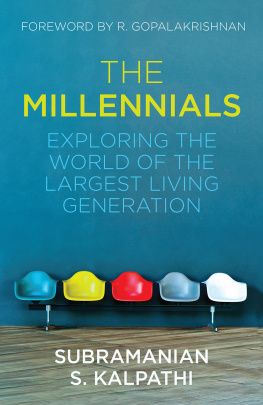
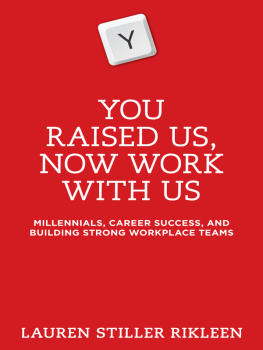
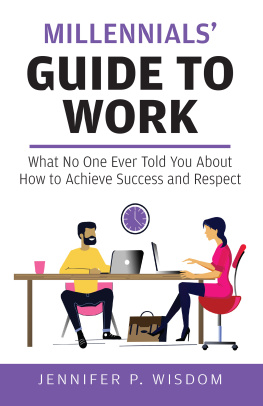
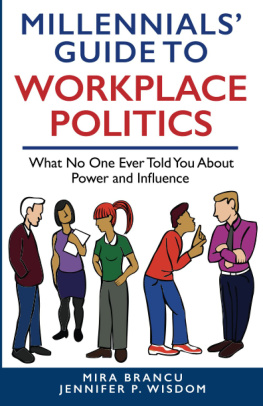
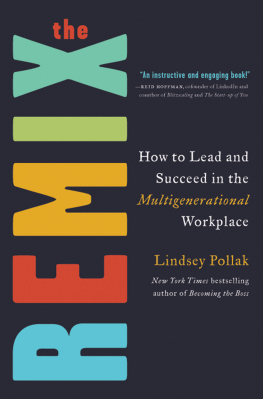
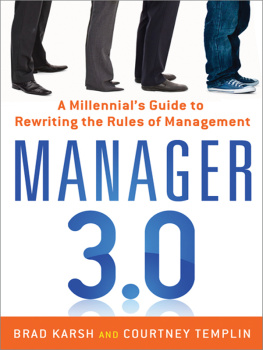
![Karsh Brad - Manager 3.0 A Millennials Guide to Rewriting the Rules of Management [[Elektronische Ressource]]](/uploads/posts/book/99578/thumbs/karsh-brad-manager-3-0-a-millennial-s-guide-to.jpg)
